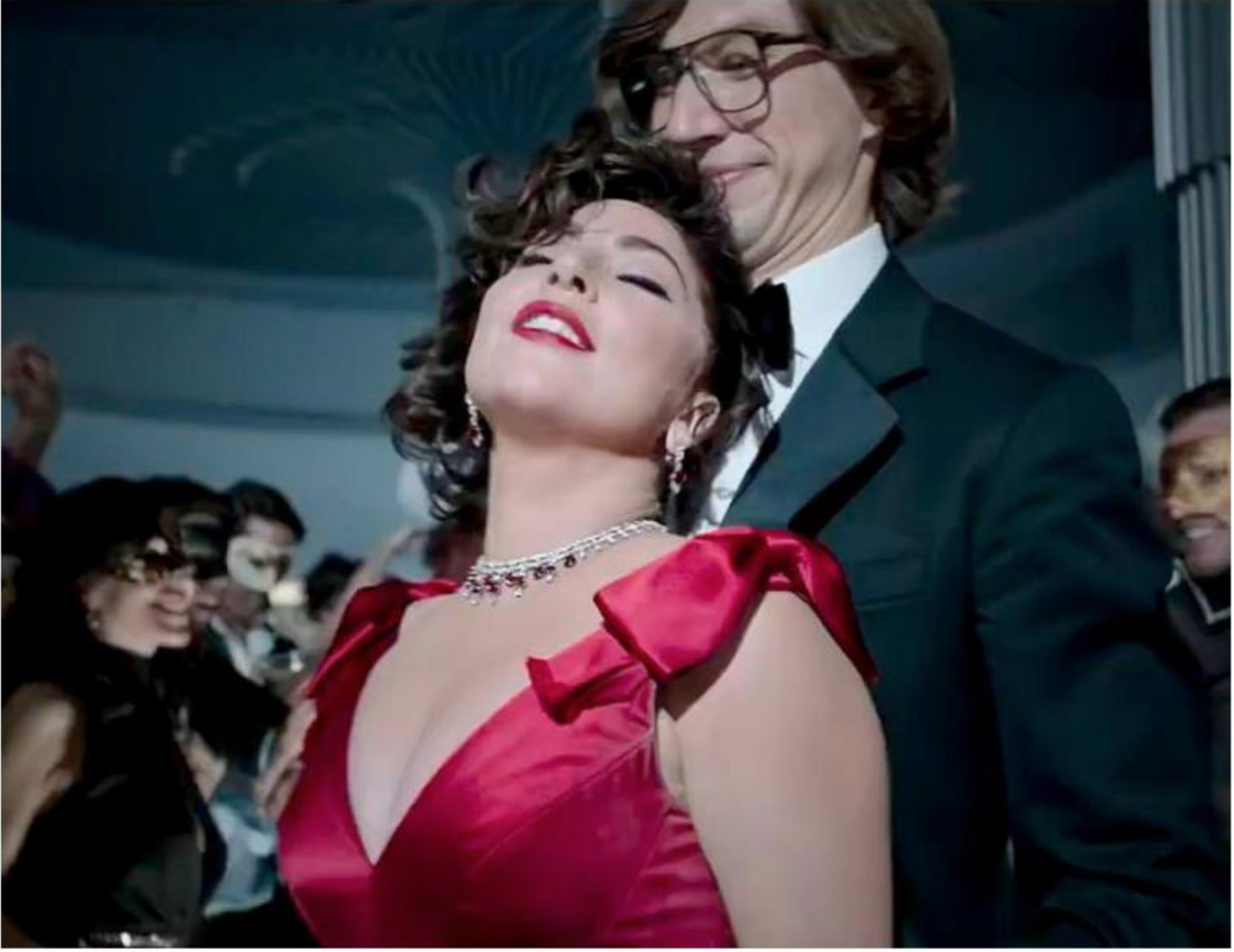House of Gucci, the second film released in the past two months from director Ridley Scott, is fun to watch. The movie isn’t great, and it isn’t terrible, but it’s full of eye candy. (Scott’s other recent film, The Last Duel, was delayed by the pandemic and released in October this year, and features Ben Affleck and Matt Damon sporting haircuts far less fashionable than the group in Gucci.)
House of Gucci follows the true story of Maurizio Gucci (Adam Driver) and his tumultuous marriage to Patrizia Gucci, née Reggiani (Lady Gaga). The story begins in 1978, when Patrizia meets Maurizio at a party and falls for him—even harder after learning the awkward, bespectacled Maurizio is a Gucci and an heir to the fashion family fortune.
Their relationship causes a rift in the Gucci family, but Maurizio follows his heart and risks losing his inheritance when he marries Patrizia. The couple settles into a blue-collar life—he becomes a truck driver, unthinkable for a man with his lineage. But when Patrizia becomes pregnant, she uses it as leverage to reconnect with the Gucci clan, and the pair is welcomed back into the fold. The film then dives in to a whirlwind of scandals, reconciliations, and murder.
The Gucci name is synonymous with luxury and extravagance, and it’s repeated over and over to frame the family’s societal reach. Gaga’s powerful performance is spotlighted as she fights to use the name, and to be accepted as a Gucci—usually while shoving her wedding rings in whomever’s face she thinks needs to see them.
The true joy of watching House of Gucci comes from the disjointed and endlessly entertaining performances. As Maurizio, Driver does his best to be warm and understated, a sheepish guy who is willing to do just about anything to make his lover happy. (This very well could be the film where Driver smiles the most.) Gaga, meanwhile, lays it on thick as a passionate but occasionally unbalanced Italian who speaks more with her hands than with her mouth.
Jared Leto, caked with cosmetics, plays cousin Paulo. He completely embodies the incompetent Paolo, to the point where it becomes a detriment to the film’s cohesion. Every single choice Leto makes is distracting, from his Mario Brothers accent to his cartoonish physicality.
Aside from a brief runway show with new designer Tom Ford (Reeve Carney), House of Gucci seems uninterested in fashion, a perplexing choice for a movie about fashion’s first family. There is discussion of the famous Gucci scarf design, and Paulo shows off his own questionable designs every time he’s on screen, but these sartorial inclusions are used more as framing devices than as an appreciation of clothes.
Even with the colorful performances and juicy source material, House of Gucci manages to be a little dull. Maurizio and Patrizia’s relationship spans decades, and Scott drags us through every bump and reconciliation. At two hours and 38 minutes, the film shuffles along at its own pace, but it’s still enough campy fun to earn our attention.
House of Gucci
R, 158 minutes
Alamo Drafthouse Cinema, Regal Stonefield & IMAX, Violet Crown Cinema







